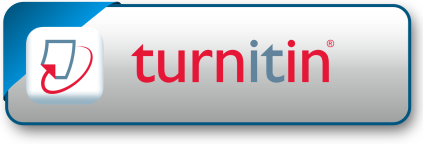IMPLEMENTASI UNDANG-UNDANG NOMOR 24 TAHUN 2007 TENTANG PENANGGULANGAN BENCANA DI PROVINSI DAERAH ISTIMEWA YOGYAKARTA
DOI:
https://doi.org/10.24853/swatantra.15.02.%25pAbstract
The study aims to how the implementations of low No. 24 of 2007 on disaster management in the pro- vince on D.I Yogyakarta. With a view of the side of the policy instrument and its implementation any discreation when viewed from the application of technical standard in use which generally include, institutional, human resources equipment stan- dard and operationing procedure standart (SOP). The method used in the research is descriptive qualitative method, as informant is staff on Natio- nal Board for Disaster Management and Local staf of District Board for Disaster Management Province of D.I Yogyakarta. Instrument used in assessing the two indicators above is by interview, literature stu- dy and observation. The result of studies have found that both indi- cators in policy instrument showed positive result, so that the implementation of the law number 24 of 2007 on disasters management in the province of D.I Yogyakarta will be going.References
Carter, W. Nick. Disaster Management, A. Disaster Management’s Handbook. ADB Manila.
Chen, Rui, et.al. Coordination in Emergency Response. Management Communication of
ACM. Vol 51, 2008.
Douglas, Roger. Administration Law and Response to Emergencies. Mount Macedon, 1998. Imran, Muhammad. Analisis Koordinasi Bidang Kesehatan pada Penanganan Tanggap
Darurat Erupsi Gunung Merapi tahun 2010. Universitas Indonesia. 2012. King, David. Organization in Disaster. National Hazar. Townville, 2007
Kementerian Kesehatan. Tinjauan Laporan Bencana Tahun 2006. Pusat Penanggulangan
Krisis, Jakarta 2006
Sugiyono. Metode Penelitian Pendidikan. Pendekatan Kualitatif, Kuantitatif dan R&D.
Alfabeta. Bandung.2010
Dye, R. Thomas, 1978, Understanding Public Policy, Prentice – Hall, Inc, Englewood Cliffs, New Jersey
Moleong (2001) Metode Penelitian Kualitatif, Bandung: Remaja Rosdakarya
Dunn, W. 2000. Pengantar Analisis Kebijakan Publik. Yogyakarta:Gadjah Mada
Ekowati, Mas Roro Lilik, 2005, Perencanaan, Implementasi dan Evaluasi Kebijakan atau Program, Edisi Revisi, PT Rosdakarya, Bandung
Gaffar, Afan, (2009). Politik Indonesia: Transisi Menuju Demokrasi, Yogyakarta, Cetakan V, Pustaka Pelajar
Abd Wahab, 1997. Analisis Kebijakan I, Haji Mas Agung, Jakarta
Sunggono, Bambang. (2004). Hukum dan Kebijaksanaan Publik. Jakarta: Sinar Grafika.
Harbani Pasolong, (2011).Teori Administrasi Publik.Bandung: Alfabeta
Yeremias. T. Keban. 2008. Enam Dimensi Strategis Administrasi Publik. Konsep, Teori Dan Isu. Yogyakarta : Gava Media
Dokumen
Peraturan Pemerintah No. 21 tahun 2008 tentang Penyelenggaraan Penanggulangan Bencana
Renstra BPBD Kabupaten Buleleng, 2012
Undang-Undang No. 24 tahun 2007 tentang Penanggulangan Bencana.
Undang-Undang no. 32 tahun 2004 tentang Pemerintahan Daerah
Downloads
Published
Issue
Section
License
Copyright aims to protect the specific way the article has been written to describe an experiment and the results. SWATANTRA is committed to its authors to protect and defend their work and their reputation and takes allegations of infringement, plagiarism, ethical disputes, and fraud very seriously. SWATANTRA is published under the terms of the Attribution-NonCommercial 4.0 International (CC BY-NC 4.0). Authors retain copyright and grant the journal right of first publication (online and print) with the work simultaneously. We use the restrictive license (non-commercial) as follows:
BY (attribution): Users are allowed to share, distribute and redistribute the published article in any medium or format, with an identification of the authors and its initial publication in this journal. Authors are encouraged to post and distribute their articles immediately after publication (e.g., institutional or public repositories, personal websites). Authors are allowed to enter into additional contractual arrangements for the non-exclusive distribution of the published and an acknowledgment of its initial publication in this journal.
NC (non-commercial): Users are not allowed to use the article commercially without the permission of the authors. Authors agree explicitly that the published article is indexed worldwide in databases, repositories, and indexation services, even if these services operate on a commercial basis. Authors grant SWATANTRA explicit the right to include the published articles in databases, repositories, and indexation services. You can see examples of personal and commercial use on this link.
Below you may find the full text of the license signed by authors.
License
- License to Publish
The non-commercial use of the article will be governed by the Attribution-NonCommercial 4.0 International (CC BY-NC 4.0). The author hereby grants SWATANTRA an exclusive publishing and distribution license in the manuscript include tables, illustrations, or other material submitted for publication as part of the manuscript (the “Article”) in print, electronic, and all other media (whether now known or later developed), in any form, in all languages, throughout the world, for the full term of copyright, and the right to license others to do the same, effective when the article is accepted for publication. This license includes the right to enforce the rights granted hereunder against third parties.
- Author’s Warranties
The author warrants that the article is original, written by stated author/s, has not been published before, contains no unlawful statements, does not infringe the rights of others, is subject to copyright that is vested exclusively in the author and free of any third party rights, and that any necessary written permissions to quote from other sources have been obtained by the author(s).
- User Rights
Under the Creative Commons Attribution-Non Commercial 4.0 International (CC BY-NC 4.0) license, the author(s) and users are free to share (copy and redistribute the material in any medium or format) and adapt (remix, transform, and build upon the material). Users must give appropriate credit, provide a link to the license, and indicate if changes were made.
- Rights of Authors
Authors retain the following rights:
- Copyright, and other proprietary rights relating to the article, such as patent rights,
- The right to use the substance of the article in future own works, including lectures and books,
- The right to reproduce the article for own purposes, provided the copies are not offered for sale, and
- The right to self-archive the article.
- Co-Authorship
If the article was prepared jointly with other authors, the signatory of this form warrants that he/she has been authorized by all co-authors to sign this agreement on their behalf, and agrees to inform his/her co-authors of the terms of this agreement.









